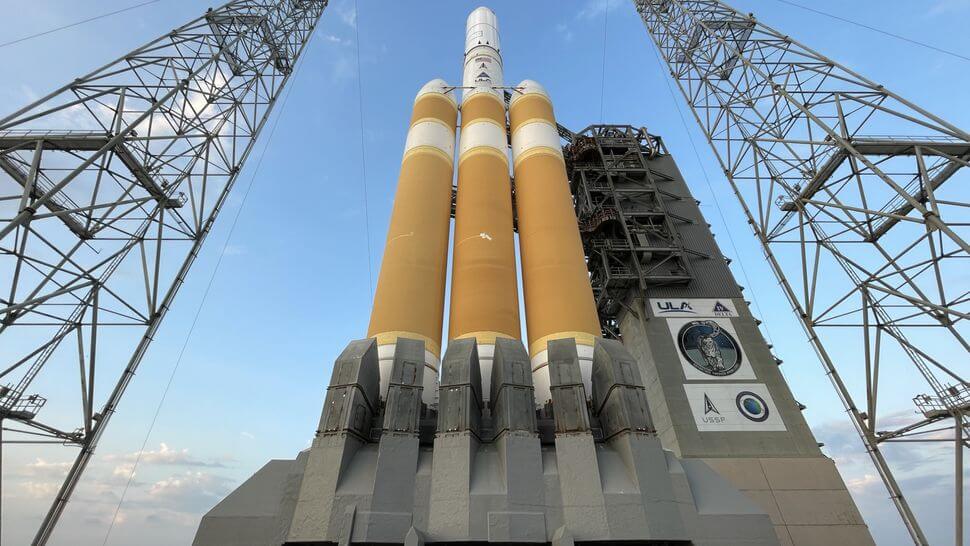We’ll have to wait at least one more day to see the swan song of United Launch Alliance’s (ULA) powerful Delta IV Heavy rocket.
The Delta IV Heavy was supposed to launch for the final time this afternoon (March 28), sending a U.S. spy satellite skyward from Cape Canaveral Space Force Station in Florida. But the attempt was scrubbed with just under four minutes left in the countdown “due to an issue with the gaseous nitrogen pipeline which provides pneumatic pressure to the launch vehicle systems,” ULA wrote in an update today.
The launch is now scheduled to take place on Friday (March 29) at 1:37 p.m. EDT (1737 GMT). You can watch the action live here at Space.com, courtesy of ULA.
Related: United Launch Alliance to launch final Delta Heavy IV rocket March 29. Here’s how to watch live
The coming launch will be the 16th and final Delta IV Heavy mission, as well as the last for the Delta rocket family, which has been flying for more than six decades.
The Delta IV Heavy’s successor, ULA’s Vulcan Centaur, is already up and running. The new rocket aced its first mission this past January, successfully lofting the private Peregrine moon lander (although Peregrine suffered problems after deploying into space and failed to reach the moon as planned).

The final Delta IV Heavy mission, called NROL-70, will launch a classified payload for the U.S. National Reconnaissance Office. The NRO builds and operates the nation’s fleet of spy satellites and rarely divulges many details about their capabilities and activities.
Thus, unsurprisingly, ULA’s NROL-70 mission description is vague, as the team only stated that the launch will “strengthen the NRO’s ability to provide a wide range of timely intelligence information to national decision makers, warfighters and intelligence analysts to protect the nation’s vital interests and support humanitarian efforts worldwide.”